Search Results
Showing results 1 to 20 of 49
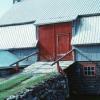
Ramps 1: Let it Roll!
Source Institutions
In this activity about ramps, learners explore and measure the rate at which spherical objects roll down a ramp.

The Four Seasons
Source Institutions
In this lesson that includes hands-on activities and demonstrations, learners discover that it is the tilt of the Earth's axis (not its proximity to the sun) that causes the seasons.
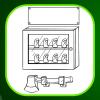
Thumbs Away!
Source Institutions
Learners discover how important their thumbs are by attempting various tasks without them. After tying up their thumbs, learners attempt to legibly write their names or play catch with a tennis ball.

Star Search
Source Institutions
In this online activity, learners can test their skills at finding constellations in the northern hemisphere's night sky.
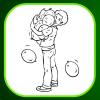
You Can't Take It With You
Source Institutions
This activity models the necessary balance of creating power and cleaning up its associated waste. Learners participate in a game where they attempt to move forward toward a goal.

Germ Tag
Source Institutions
In this version of tag, a large group of learners model how the body fights infection. Learners act as germs, as lymphocytes, and as the body's cells threatened by germs.

The Pulse is Right
Source Institutions
In this online activity, learners measure their pulse rates and investigate how their pulses change when they engage in different activities.
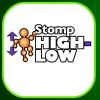
Stomp High Low
Source Institutions
Learners work together as a group to learn a new physical activity. After working for a few rotations, learners time themselves as part of a contest.
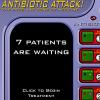
Antibiotic Attack
Source Institutions
In this online simulation, learners use antibiotics to cure patients with bacterial infections.

Power Play
Source Institutions
In this online game, learners build complicated machines to complete simple tasks. The game starts with a power source on one side of the screen and the task on the other side.
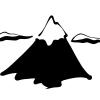
Mountain Mash
Source Institutions
Learners model the processes that formed some of Earth's largest mountain ranges: the Himalayas, the Andes, and the Alps.
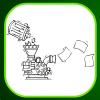
Paper Maker
Source Institutions
Learners make their own paper. They start by shredding old newspaper, clean toilet paper, and clean paper towels.

Shape it Up
Source Institutions
In this online activity, learners see simulations of how processes shape the Earth, and see estimates of how long these processes take.
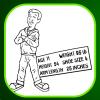
By the Numbers
Source Institutions
Learners describe objects in a room using only numbers and shapes. They can measure the object (like a desk) and make a list of facts about it (e.g.
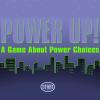
Power Up!
Source Institutions
In this online game, learners must purchase power plants for their city.

Constellation Chamber
Source Institutions
Learners build 3D representations of constellations, which show not just the position of the stars as seen from Earth but also their relative distance from Earth.

Gravity Launch
Source Institutions
In this online game, learners attempt to send a rocket ship to various targets. Learners can adjust the angle and thrust of the rocket before it is launched.

Inside Out
Source Institutions
Learners draw and cut out shapes of organs from construction paper. Then they attach these organs to the body of one learner to make a life-sized map of all the internal organs.

Sink It
Source Institutions
Learners classify a variety of objects by their characteristics. They then design an experiment to determine which objects float or sink in water and add this characteristic to their classification.

Dance Diagram
Source Institutions
Teams of learners use a series of stick figures made from pipe cleaners to model a dance routine. Then, they use this model to communicate to another learner who performs the dance routine.
